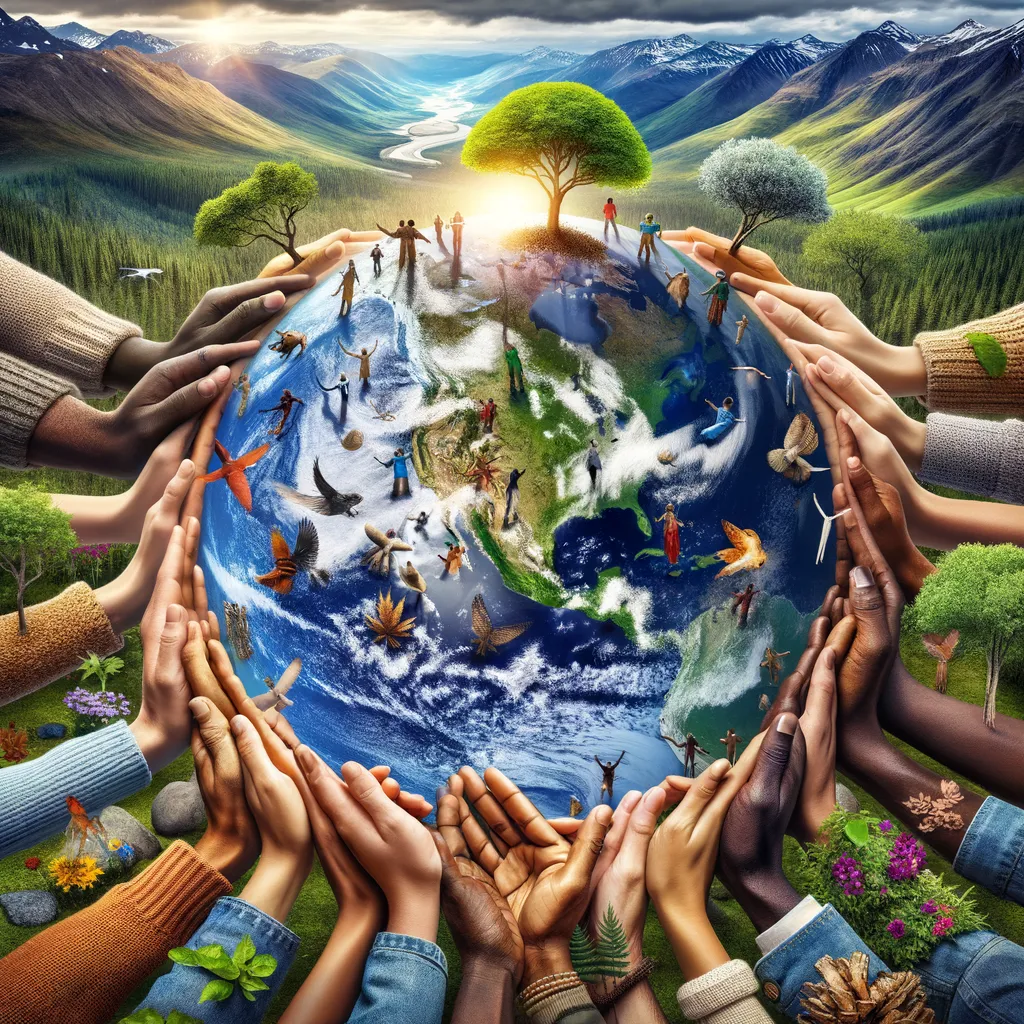Unlocking the World Together: A Guide for Parents on Collaborative International Conservation Projects
Welcome, parents! Are you looking for a meaningful way to teach your children about the importance of environmental conservation, while also exploring the beauty and diversity of our planet? You’ve come to the right place! In this comprehensive guide, we’ll dive into the world of Collaborative International Conservation Projects, providing you with everything you need to know to get started on this rewarding journey with your family.
Before we embark on this adventure together, why not take a moment to explore the great Outdoors and Find camping spots that could be your first step towards understanding the environment we aim to protect? These resources are not only essential for planning your next family outing but also for inspiring a deeper appreciation for the natural world in your children.
Why Collaborative Conservation Matters
The beauty of our planet is unrivaled, but it faces significant threats from pollution, deforestation, climate change, and more. This is where collaborative international conservation efforts come into play. By joining hands across borders, we can make a substantial difference in protecting our planet for future generations. These projects not only contribute to the health of our environment but also offer invaluable lessons in cultural understanding, teamwork, and global responsibility.
How Your Family Can Get Involved
Getting involved in international conservation projects as a family can be both fulfilling and fun. It’s an opportunity to bond over shared values, learn new skills, and make a positive impact. From adopting a wildlife conservation project to participating in local clean-ups that contribute to global efforts, there are myriad ways for families to contribute. We will explore these opportunities in more detail, providing you with practical tips on how to get started and how to choose the right project for your family.
Benefits of Participating in Conservation Projects
Participating in conservation projects offers numerous benefits for both the planet and your family:
- Educational Value: Children and adults alike can learn about biodiversity, ecosystems, and the importance of sustainability through hands-on experience.
- Building a Better Future: By taking action now, you’re contributing to a healthier planet for future generations.
- Personal Growth: Such projects can foster a sense of responsibility, enhance leadership skills, and build confidence.
- Creating Lasting Memories: The experiences you share as a family during these projects can create bonds and memories that last a lifetime.
As we delve deeper into the world of collaborative international conservation projects, keep these benefits in mind. They’re not just about making a difference in the world; they’re about enriching your family’s life in countless ways.

Unlocking the World Together: A Guide for Parents on Collaborative International Conservation Projects
Welcome, parents! Are you looking for a meaningful way to teach your children about the importance of environmental conservation, while also exploring the beauty and diversity of our planet? You’ve come to the right place! In this comprehensive guide, we’ll dive into the world of Collaborative International Conservation Projects, providing you with everything you need to know to get started on this rewarding journey with your family.
Before we embark on this adventure together, why not take a moment to explore the great Outdoors and Find camping spots that could be your first step towards understanding the environment we aim to protect? These resources are not only essential for planning your next family outing but also for inspiring a deeper appreciation for the natural world in your children.
Why Collaborative Conservation Matters
The beauty of our planet is unrivaled, but it faces significant threats from pollution, deforestation, climate change, and more. This is where collaborative international conservation efforts come into play. By joining hands across borders, we can make a substantial difference in protecting our planet for future generations. These projects not only contribute to the health of our environment but also offer invaluable lessons in cultural understanding, teamwork, and global responsibility.
How Your Family Can Get Involved
Getting involved in international conservation projects as a family can be both fulfilling and fun. It’s an opportunity to bond over shared values, learn new skills, and make a positive impact. From adopting a wildlife conservation project to participating in local clean-ups that contribute to global efforts, there are myriad ways for families to contribute. We will explore these opportunities in more detail, providing you with practical tips on how to get started and how to choose the right project for your family.
Benefits of Participating in Conservation Projects
Participating in conservation projects offers numerous benefits for both the planet and your family:
- Educational Value: Children and adults alike can learn about biodiversity, ecosystems, and the importance of sustainability through hands-on experience.
- Building a Better Future: By taking action now, you’re contributing to a healthier planet for future generations.
- Personal Growth: Such projects can foster a sense of responsibility, enhance leadership skills, and build confidence.
- Creating Lasting Memories: The experiences you share as a family during these projects can create bonds and memories that last a lifetime.
As we delve deeper into the world of collaborative international conservation projects, keep these benefits in mind. They’re not just about making a difference in the world; they’re about enriching your family’s life in countless ways.
5 Things Parents Should Know in Preparing for Collaborative International Conservation Projects
Embarking on a conservation project journey requires preparation and understanding. Here are five essential tips for parents looking to get involved:
- Research is Key: Before diving into a project, it’s crucial to understand its goals, requirements, and impact. Look for projects that align with your family’s interests and values. Websites of environmental organizations and forums on conservation projects can be great starting points.
- Prepare for the Experience: Conservation projects can vary greatly in terms of location, duration, and type of work. Some may involve physical labor outdoors, while others might be more research-oriented. Ensure your family is physically and mentally prepared for the task at hand, and consider any travel arrangements that may need to be made.
- Engage in Learning Opportunities: Conservation projects offer rich learning experiences, so take advantage of them! Whether it’s learning about local wildlife, conservation techniques, or cultural exchange, encourage your family to fully immerse in the learning opportunities presented.
- Safety First: Always prioritize the safety of your family. This means having the right gear for the project, vaccinations (if traveling abroad), and a clear understanding of the project’s safety guidelines. Also, ensure that the project is suitable for children if you’re planning to involve them.
- Contribute Positively: Remember, the goal of participating in a conservation project is to contribute positively to environmental efforts. Teach your children the importance of respect for nature, local cultures, and communities involved in the projects. It’s about making a positive impact while growing as individuals and as a family.
Embarking on a collaborative international conservation project can be one of the most fulfilling experiences for a family. It teaches invaluable lessons in conservation, teamwork, cultural appreciation, and personal responsibility. By preparing adequately, choosing the right
Disclaimer
The articles available via our website provide general information only and we strongly urge readers to exercise caution and conduct their own thorough research and fact-checking. The information presented should not be taken as absolute truth, and, to the maximum extent permitted by law, we will not be held liable for any inaccuracies or errors in the content. It is essential for individuals to independently verify and validate the information before making any decisions or taking any actions based on the articles.




